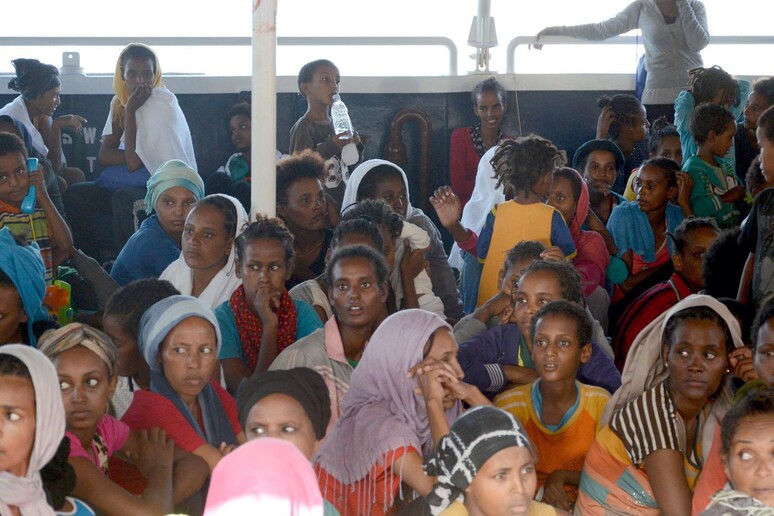The European Commission on
Wednesday adopted proposals to address a rising tide of record
migration through the EU's border countries. A mandatory quota
system to allocate 160,000 refugees, fines for those who want to
opt out, and speedier repatriation are among reforms presented
by EC President Jean Claude Juncker in his State of the Union
speech at the European Parliament.
* EMERGENCY RELOCATION of 120,000 refugees from Italy (15,600),
Greece (50,400) and Hungary (54,000). The redistribution follows
a mandatory formula based on objective criteria (40% on the size
of the country's population, 40% on GDP, 10% on the average
number of asylum requests made in the past, 10% on domestic
unemployment). The relocations will be applied to nationalities
with an average asylum approval rate at the EU level of over
75%. The new proposal is in addition to one in May, which called
for the relocation of 40,000 migrants from Italy and Greece, or
24,000 and 16,000 migrants, respectively. The two schemes
together will relocate a total of 160,000 people. The EU is
allocating 780 million Euros from the EU budget to participating
member states, including 50% prefinancing to ensure that public
authorities have the means to act quickly.
* TEMPORARY SOLIDARITY CLAUSE. If a state can not accept
temporarily a decided relocation due to objective and justified
reasons, such as a natural disaster, it will be required to make
a financial contribution to the EU budget in the amount of 0,002
% of its GDP. The EC will analyze the reasons raised by the
country and will decide whether they justify non-participation
in the program for up to 12 months. In case of partial
participation, the amount will be reduced proportionately.
* PERMANENT MECHANISM FOR RELOCATION. The EC proposes a system
of structured solidarity that can be activated at any time to
assist member states facing emergency situations. These
circumstances will be defined by the EC based on the number of
asylum applications in the last six months, per capita, and
based on the number of irregular border crossings in the last
six months. The same objective and verifiable criteria will be
applied to distribution the proposed emergency relocation. The
permanent mechanism will take into account the needs, the family
circumstances and skills of asylum seekers. Also in this case,
the temporary solidarity clause will be applied.
* LIST OF EU COUNTRIES OF SAFE ORIGIN. The new system will allow
accelerated processing of applications from those seeking asylum
from countries the EU considers secure, and rapid repatriation
if the individual assessment of demand confirms the absence of
the right to asylum. Brussels proposes to include Serbia,
Turkey, Albania, Bosnia-Herzegovina, Macedonia, Kosovo and
Montenegro on the list of secure countries.
*BETTER EFFICACY OF REPATRIATION POLICY. The EC proposes an
action plan that foresees strengthening implementation of the
directive by improving information sharing as well as
strengthening the role and mandate of Frontex. The EC has also
adopted a manual that provides practical instructions for
national authorities to carry out the repatriation of migrants
who are not entitled to stay in the EU.
* REFUGEE SUPPORT. The EC will communicate public procurement
rules for refugee support. States must respond appropriately and
quickly to the most urgent needs of asylum seekers as housing,
basic necessities, services. The communication will provide
guidance to national authorities on how to provide such services
in a fast and efficient way in compliance with EU rules.
* FUND FOR AFRICA. Brussels has allocated 1.8 billion Euros to
establish an emergency 'trust fund' to deal with the root causes
of irregular migration from the Sahel, Lake Chad, the Horn of
Africa and North Africa. The fund will support these regions to
develop more economic opportunities and better policies to
manage migration. Brussels also expects an active contribution
by member states. Spain, for example, have already confirmed its
participation.
* STRENGTHENED INFRINGEMENT PROCEDURES. The other side of the
solidarity offered to states on the front line of the migrant
crisis is enforcement of EU rules. To this end, the EC this week
also increased infringement proceedings to be applied at
'hotspot' centres in member states heavily hit by the crisis.
ALL RIGHTS RESERVED © Copyright ANSA











